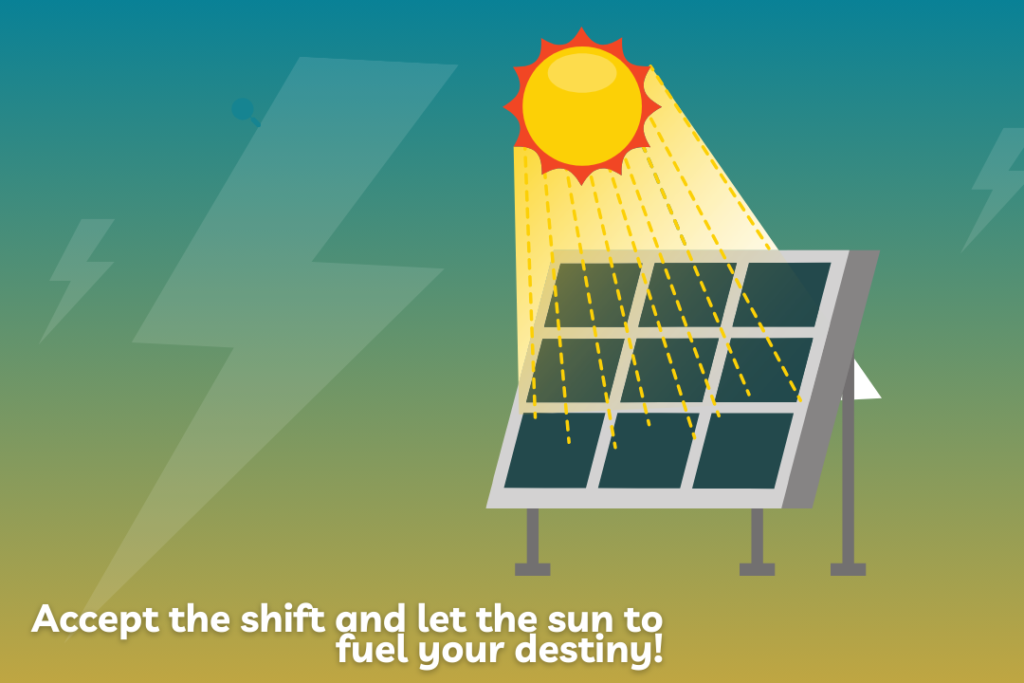Power Shift: Can Solar Panels Become the Future’s Main Electricity Source?
Introduction: Solar Energy’s Dawn:
There are concerns regarding solar energy’s potential to replace traditional electricity suppliers because of the growing viability as a globally harmless alternative to traditional generators due to gains in technology and a focus on the environment. This study looks into how it could entirely alter our electrical system.
The Situation of Solar Power Right Now:
Over the past ten years, there has been a significant advancement in solar technology, leading to increased efficiency and affordability. The sun’s energy can generate electricity directly, eliminating the need for oil and gas. Solar energy is appealing because of this. Worldwide authorities are driving the solar industry ahead by offering tax cuts and subsidies that encourage the usage of solar energy.
Benefits of Solar Power:
Renewability: Solar energy is a plentiful and pervasive energy source that never runs out in contrast to fossil fuels.
Environmentally Friendly: Solar panels reduce the carbon footprint of energy usage greatly by generating electricity without releasing greenhouse gases into the atmosphere.
Cost-Effectiveness: Solar panels produce free electricity and require little maintenance after the initial setup expenditures. They provide considerable energy cost savings over time.
Energy Independence: By reducing reliance on electricity from the grid and boosting energy security, solar power helps individuals and communities become self-sufficient.
Difficulties to Face:
Even with its promise, a number of obstacles need to be overcome before solar energy can completely replace conventional electricity sources
Intermittency: Because solar energy is reliant on the weather and daylight hours, it is less dependable at night or in places with little sunlight.
Storage Problems: Improvements in battery technology to store energy for usage during cloudy periods are necessary for solar power to be effective.
High Initial Investment: Although it is gradually going down, installing solar panels might be prohibitively expensive up front.
Infrastructure Adaptation: In order to switch to solar energy, the current power grid needs to be changed so that it can support changeable and autonomous power output.
Considering the Future:
Innovations in solar are rapidly overcoming existing limitations. It is heartening to see advances in photovoltaic material technology and solar efficiency. Additionally, improvements in flow and lithium-ion battery technology are enabling more effective energy storage, which is addressing the intermittency problem.
Adoption and Impact Worldwide:
Leading solar-adopting countries such China, Germany, and the USA show that it is possible to move to solar-centric energy systems. Especially in Asia and Africa, solar power has the capacity to outperform conventional infrastructure in sunny nations and provide millions of people with electricity without the requirement of large-scale grid networks.

In conclusion, a cleaner, brighter future:
Solar technology’s pattern suggests that it may someday replace other sources as the primary source of power, despite the fact that there are still difficulties to overcome. Solar energy is poised to lead the shift to a cleaner and more environmentally friendly energy the surroundings through ongoing innovation, regulation encouragement, and its dedication to sustainability.







Post Comment